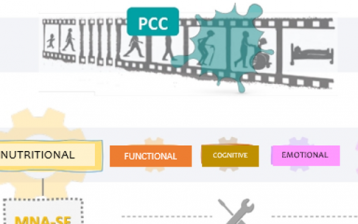
Spain
16 stakeholders and covering 75% of all health care professionals in Spain
16 stakeholders and covering 75% of all health care professionals in Spain

Contact Miguel for inquiries on Spanish campaign activities and for publishing of your Good Practice on this website.
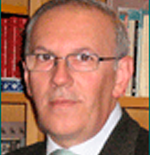
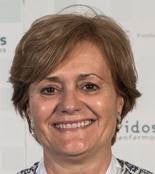
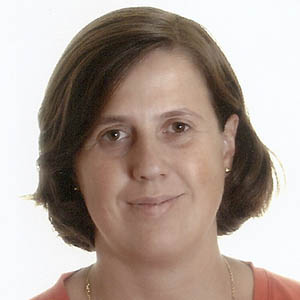

In 2011, the Spanish Society for Clinical Nutrition and Metabolism (SENPE) and Abbott Foundation started a Project to raise awareness on the problem of DRM among the policymakers and administrators and build an action plan to tackle DRM in Spain. This led to the creation of the másnutridos Project in 2012.
The Project was inspired by the Dutch model and included the following key points:
In 2014, Spain joined the Optimal Nutritional Care for All campaign taking part in the first meeting in Brussels. The Spanish delegation included members of the MoH, regional governments and representatives of several professional societies, other than SENPE (Endocrinology, Pediatrics, Geriatrics and Nursing).
This meeting fostered the Project in two ways:
During these years, we have developed different tools for the dissemination of our project:
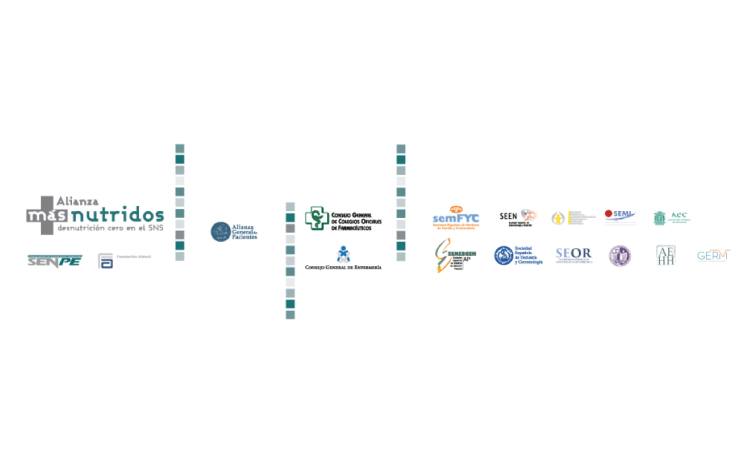
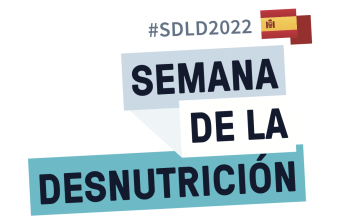
Spain organised its Malnutrition Awareness week in November 2022
Read the report
Spain organised its Malnutrition Awareness week in November 2020
Read the reportVision
In all the European countries, each individual at risk of malnutrition or malnourished should be systematically screened, evaluated and followed-up, and be able to benefit from high quality, equitable and appropriate nutritional care.
ENHA “The European Nutrition for Health Alliance” launched and supports the ONCA campaign (2014).
ENHA is a European platform of active partners in public health, health and social care; by developing and encouraging actions, ENHA tries to improve the quality of nutrition in its broadest possible sense, from basic food to nutritional support (adapted oral feeding, oral nutritional supplements, enteral and parenteral nutrition) and tackle malnutrition and the risk of malnutrition in Europe.
Concerning ONCA, ENHA firstly encourages and supports each member state to create and foster their own alliances and secondly brings members together twice a year to encourage exchanges and generate joint actions (good practices).
National alliances are composed of partners, concerned in the broadest possible sense by “Nutritional Care”, including the Public Authorities.
Why ONCA?
Disease-related malnutrition or malnutrition as a result of social, psychological or economic circumstances is a global public health problem.
In Europe, 33 million adults are at risk of malnutrition. This poses a significant financial impact for public health leading to additional costs of €170 billion /year.
Situation in Spain
Disease-related malnutrition (DRM), which many times is influenced by social, psychological or economic circumstances, concerns all care settings: hospitals, community and nursing homes. Adequate care plans including, quality food supply and medical nutrition treatment (including oral nutritional supplements, enteral and parenteral nutrition) should be available in all the clinical settings.
In Spain, we have some data on the prevalence of DRM and its costs in different clinical settings.
The PREDYCES study was performed in 2011 in 31 randomised Spanish hospitals including 1597 patients and showed a prevalence of 23,7% of patients at risk of malnutrition or malnourished (according to NRS 2002), that increased to 37% in elderly people over 70 years old. The prevalence was higher in patients with cancer (35%), cardiovascular (29%) and respiratory diseases (28%). This study also concluded that the cost of hospitalisation increased by at least 50% in patients with malnutrition (€6,572 vs. €9,089/patient) and that hospital stay increased twofold in these cases.
The DREAM +65 study included 1103 subjects over 65 years old in Madrid, from different clinical settings: 275 subjects from primary care centres, 278 from day centres, 281 from hospitals and 269 from nursing homes. Using the MNA screening-assessment instrument, the prevalence of malnutrition in hospitals was 21.7% and nutritional risk, 46.6%. The prevalence of malnutrition in the community was much lower, values being 2.1% in primary healthcare centres and 0.4% in daycare centres for the elderly, while the figures for nutritional risk were 10.9% and 4.7%, respectively. In nursing homes, the figures for malnutrition and nutritional risk were slightly lower than those for hospitals: 15.6% and 30.9%, respectively. There was a relationship between malnutrition and the degree of dependence, as well as the clinical setting, adjusted for age and sex.
másnutridos Alliance
After the first achievements in the fight against DRM with the Predyces Study (2010) and the Multidisciplinary Consensus (2011), the Spanish Society for Clinical Nutrition and Metabolism (SENPE) and Abbott Foundation started a Project to raise awareness among the policymakers and administrators on the problem of DRM and build an action plan to tackle DRM in Spain. This led to the creation of the másnutridos Project in 2012.
The Project was inspired in the Dutch model and included the following key points:
1. Education and training of health care professionals in the problem of DRM and the methods to detect and treat it
2. Nutritional screening across all the NHS and evaluation of DRM
3. Protocols of nutritional treatment in hospitals, nursing homes and primary care centres
4. Monitoring plan of care and nutritional treatments
5. Adequate codification of DRM to make the problem visible and obtain reimbursement in the hospitals
6. Process of outcome evaluation in health, taking into account quality and costs
In 2015, the Project evolved to másnutridos Alliance in 2015 with the inclusion of more stakeholders: scientific societies, patients associations, and the Councils of Nursing and Pharmacists. Currently, the Alliance includes 16 stakeholders and covers 75% of all health care professionals in Spain.
Highlights of the project over the past years:
2012
• Launch of másnutridos project
2013
• Creation of másnutridos regional network (37 representatives in 17 regions)
2014
• Spain joins ONCA campaign
• Launch of www.alianzamásnutridos.com
2015
• Creation of másnutridos Alliance, gathering 35% of healthcare professionals
• The Ministry of Health creates a workgroup on DRM
• Non-Law Proposition (NLP) on DRM in the Balearic Islands
• The autonomous community of Aragon elaborates a document for the approach to DRM
2016
• The Alliance grows: 50% of HCP
• Elaboration of DRM document by the Ministry of Health
• Canary Islands approves the implementation of nutritional screening in hospitals
• ONCA conference comes to Madrid
2017
• Adhesion of 6 new members, reaching 60% of HCP
• Patient’s manifesto signed by 26 organisms
• Non-Law Proposition (NLP) on DRM in the autonomous communities of Galicia and Andalucia
• The autonomous community of Galicia includes measures to approach DRM in hospitals’ management contracts
2018
• Adhesion of 4 new members: 75% of HCP
• Raise awareness to Her Majesty Queen Letizia
• Approval of a Non-Law Proposition (NLP) on DRM in the Congress of Deputies
• Non-Law Proposition (NLP) on DRM in the autonomous communities of La Rioja and Murcia
• DRM included in Pre-draft law on healthy habits in the autonomous community of Andalucia
• The Alliance is awarded the Medical Nutrition International Industry (MNI) Grant 2018
• Publication of a study from the Health Technology Assessment Agency of the Canary Islands offering positive conclusions about the implementation of nutritional screening in hospitals
Planned activities in 2019:
• National cost –economy study (MNI grant)
• Organization, along with the Regional Ministry of Health, of a seminar with the managers of the 7 main hospitals of the autonomous community of Galicia
• Publication of two new notebooks:
o Nutritional plan in care homes
o Nutritional plan in Pediatrics
• General, regional and local elections: meetings with new health authorities
• Launching of Alliance másnutridos new communication plan
References